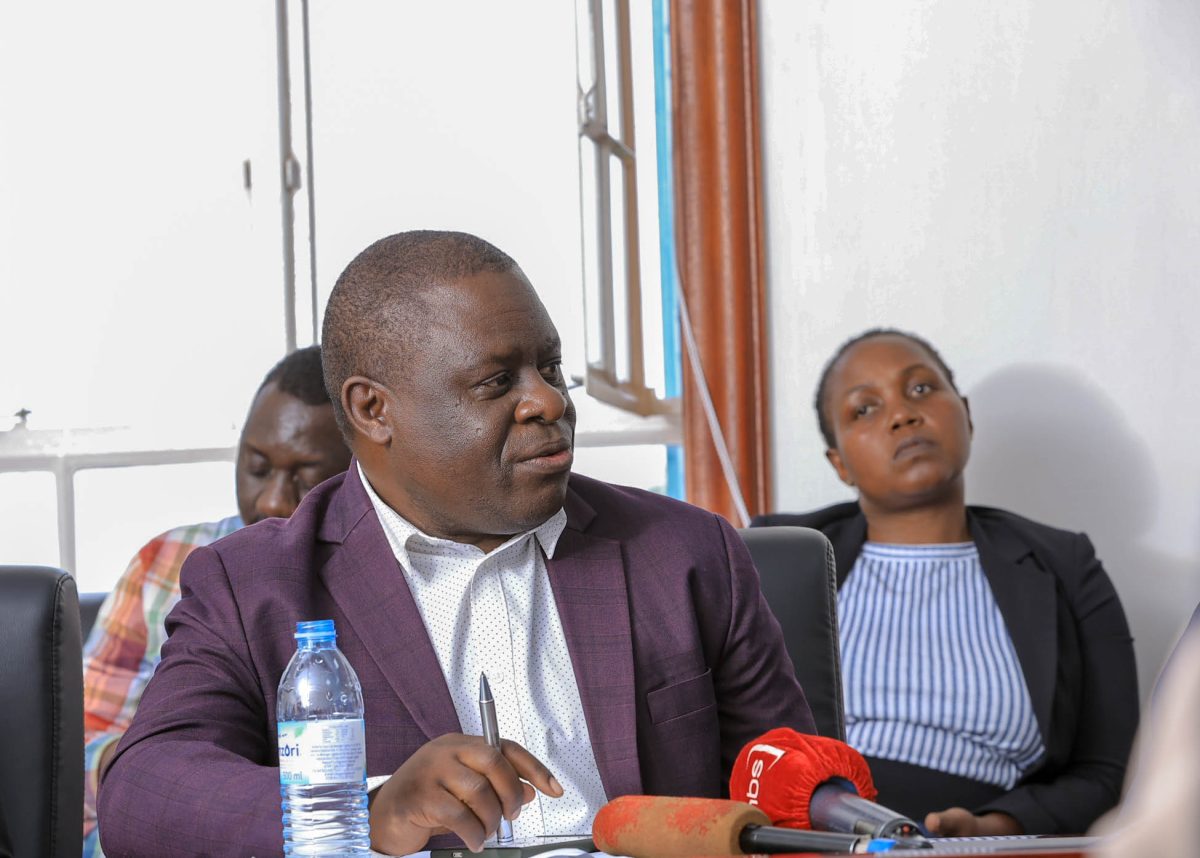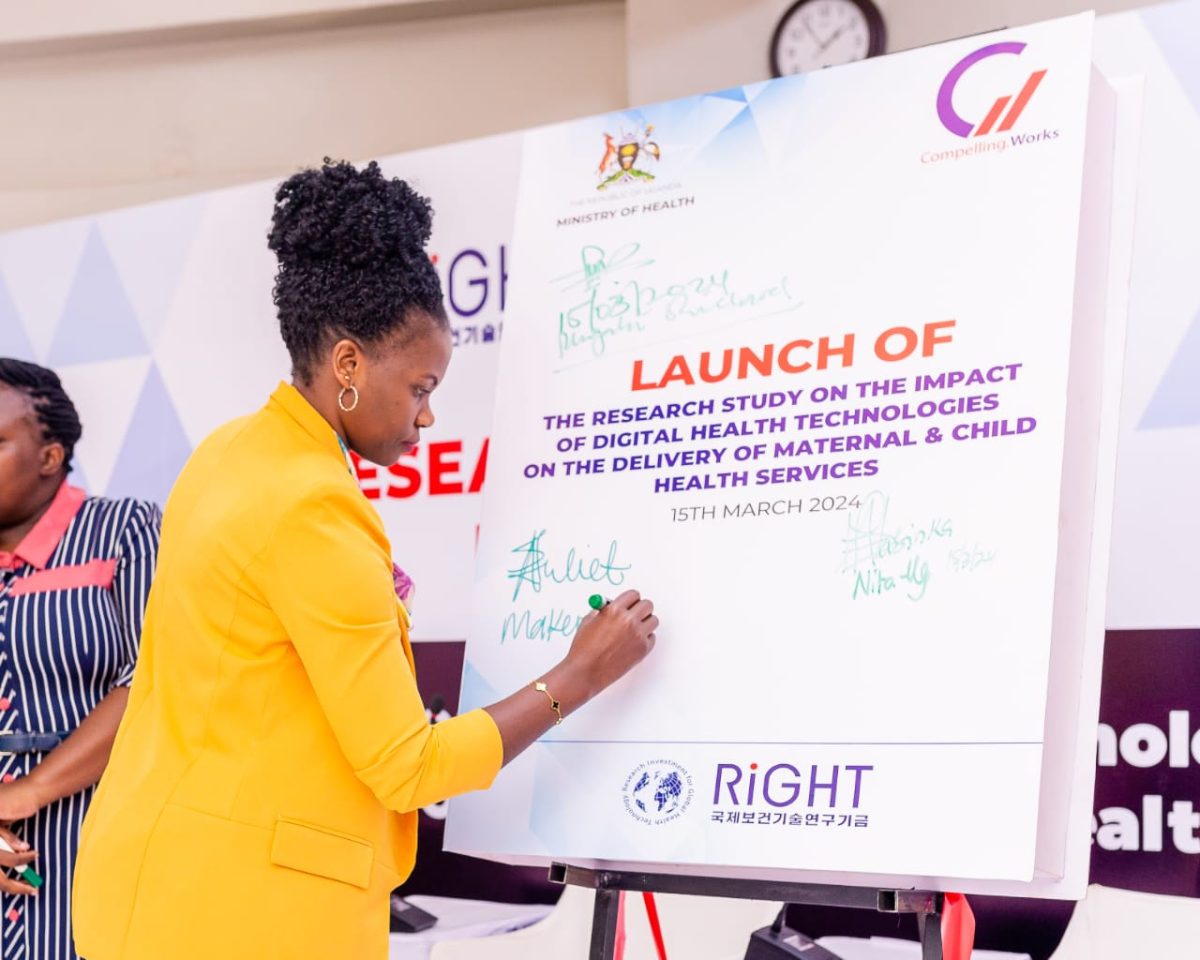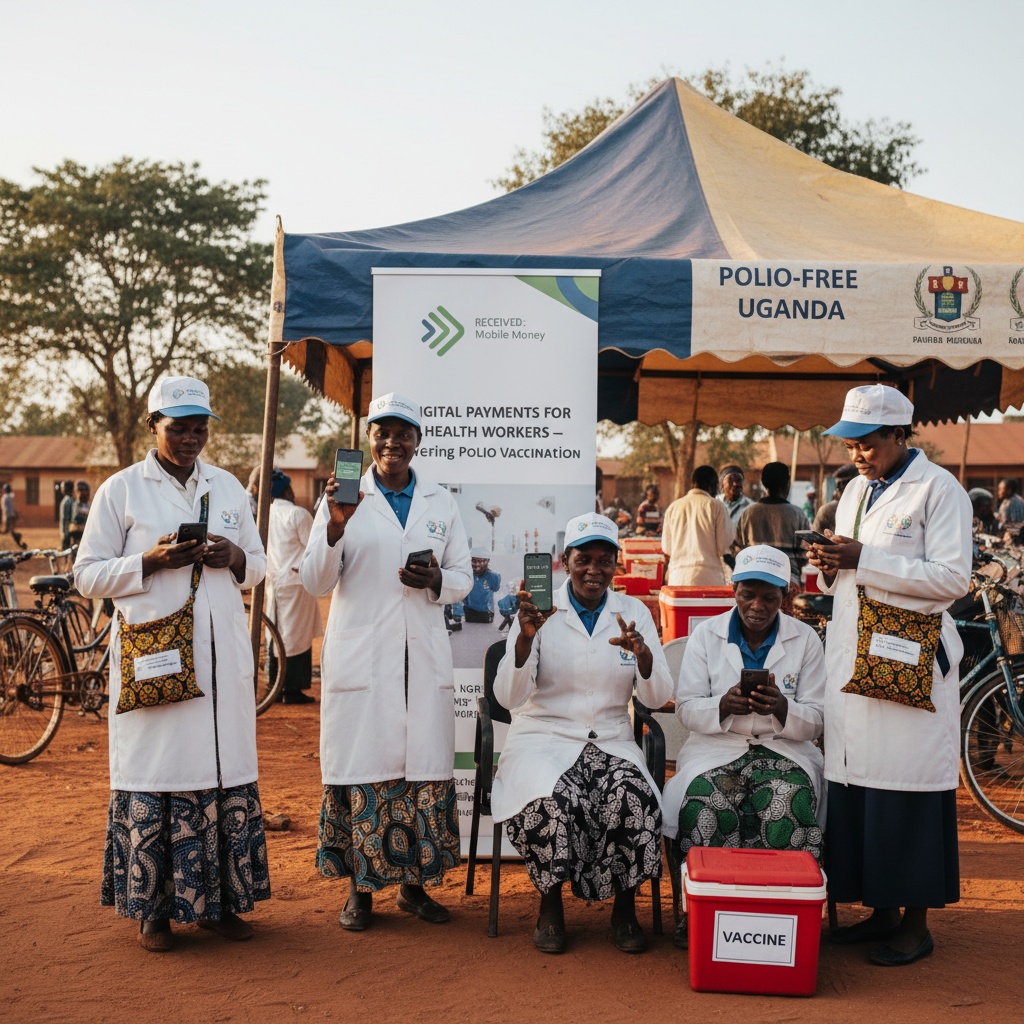KAMPALA, Uganda —Supporting districts to adopt digital payments can significantly improve the efficiency of mass vaccination campaigns in Uganda, even if the gains do not directly translate into higher worker motivation, a new study by Makerere University School of Public Health (MakSPH) researchers has found.
Published on September 10, 2025, in BMJ Global Health, the study examined how helping districts in Uganda transition from cash-based to electronic payments affected vaccination campaign workers. Conducted in early 2023, some four months after the nationwide oral poliovirus vaccination campaign of November 2022, the research assessed the impact of digitised payments on efficiency, timeliness, and worker satisfaction.
With generous support from the Bill & Melinda Gates Foundation, the study was led by MakSPH researchers Peter Waiswa, Juliet Aweko, Maggie Ssekitto Ashaba, Elizabeth Ekirapa-Kiracho, and Charles Opio, in collaboration with Margaret McConnell of the Harvard T.H. Chan School of Public Health, Daniel Donald Mukuye from Uganda’s Ministry of Health, and Andrew Bakainaga from the World Health Organisation (WHO)–Uganda Country Office.
The study’s Principal Investigator and lead author, Assoc. Prof. Peter Waiswa, a health systems researcher at Makerere University School of Public Health, said while the research was conducted in Uganda, its implications are global. He pointed out that some African countries, such as Côte d’Ivoire, Zambia, Tanzania, and Kenya, are already ahead in adopting digital payment systems, while others still lag behind. The study’s findings, he said, are relevant across these contexts and have already informed the work of global actors such as Gavi, WHO, and the Global Fund, who are now integrating digital payments into their own processes.
“This paper is part of several studies we are conducting, but perhaps the most significant,” said Dr. Waiswa, clearly enthusiastic about the findings. “Another outlines the research agenda for digital payments, emphasising the need for more evidence on whether they improve the quality of immunisation campaigns, ensure timeliness and efficiency, and identify which groups face barriers to their use.”

The study was coordinated by MakSPH in collaboration with a network of partners. In Uganda, these included the Ministry of Finance, the Ministry of Health, the World Health Organisation, several implementing organisations, district authorities, as well as telecommunication companies. Importantly, the involvement of Airtel as a non-traditional actor in the study demonstrated the critical role of private sector engagement, often absent in such collaborations, in generating evidence and advancing digital health solutions, particularly in addressing challenges such as timely payments for health campaign workers.
The November 2022 polio campaign, led by the government of Uganda with support from the U.S. CDC and WHO, targeted 8.7 million children under five with the novel oral polio vaccine (nOPV2). Nearly 72,000 teams, including health workers, Village Health Teams, and Local Council representatives, were mobilised nationwide, administering about 10 million doses despite the temporary exclusion of five districts due to the Ebola outbreak at the time.
Building on the campaign, the researchers conducted an exploratory cluster-randomised trial using a mixed-methods approach across 54 districts in Uganda, where they enrolled 2,665 healthcare workers. Intervention districts were trained to use Uganda’s e-cash platform, a government innovation managed by the Ministry of Finance. Introduced in 2017 and formalised in 2019, the cashless system was designed to digitise urgent government payments, enhance efficiency, and improve transparency. It now complements the Integrated Financial Management System, which, though effective for routine payments, was seen as too slow for time-sensitive transactions, including paying campaign health workers, where timely remuneration is critical for maintaining workforce readiness, sustaining campaign momentum, and promptly addressing public health challenges in the communities served.
Intervention studies usually introduce a treatment or program to a group to observe its effects, and the results are compared with a group that does not receive it. The training during the study addressed the delays, leakages, and administrative bottlenecks common in cash-based systems. Intervention districts received instruction on navigating the government e-cash platform, managing user roles, uploading beneficiary data, and generating payment reports, while control districts maintained standard cash payment procedures, serving as a baseline.
Dr. Juliet Aweko, co-author and Research Associate at MakSPH, said the study was timely, observing that health workers are central to successful vaccination campaigns and delayed payments can demotivate them and compromise campaign effectiveness.
“To make digital payments truly work, campaigns must be planned with the workforce in mind. Government and partners need to ensure funds are disbursed on time, streamline and automate registration and verification, and keep accurate records of health workers and their performance. Making mobile money systems compatible and giving workers real-time updates on their payments would not only build trust but also keep them motivated, ultimately improving turnout and ensuring smoother service delivery,” Dr. Aweko stated.

The study found that electronic cash adoption was significantly higher in intervention districts, where 57.5% of workers were paid digitally compared to 44.1% in control districts. What’s more, digital payments did not delay disbursement, as 97.6% of all workers received payment after campaign completion, regardless of method. Still, workers paid via e-cash consistently described the cashless system as convenient, transparent, and cost-effective, citing reduced travel time, lower personal costs, and fewer security risks.
Today, Uganda’s rapidly expanding digital ecosystem provides ground for scaling up cashless payment systems. The Uganda Communications Commission reports that the country has over 43 million active mobile subscriptions, nearly 88% of the estimated 49 million population. Its latest market report shows 26.1 million active internet users, while mobile money continues to dominate financial transactions with more than 33 million accounts and transaction values growing by over 25% annually, according to reports by the Bank of Uganda as of March 2025. This trend reflects a population increasingly reliant on digital platforms, creating a strong opportunity to embed e-payment systems in health service delivery.

For MakSPH researchers Dr. Waiswa and Dr. Aweko, the study evidence confirms that digital payments are both feasible and practical for strengthening the delivery of mass campaigns in low- and middle-income countries like Uganda. With relatively modest support, districts can adopt e-cash systems, providing a scalable model for the health sector. This approach, they suggest, would streamline compensation, reduce administrative delays, and provide a stronger basis for integrating digital payments into future immunisation drives and other public health interventions in the country, thereby strengthening our health systems.
The researchers further emphasised that digitising campaign payments reduces transaction costs and minimises leakages, enabling more funds to reach frontline workers quickly. E-cash also simplifies logistics, strengthens accountability, and enhances financial tracking in health campaigns. These advantages, they found, directly align with the global effort to advance digital transformation in health systems and ensure reliable, transparent worker compensation. The implications also extend beyond just polio, as Uganda continues to rely on mass campaigns for routine immunisation and other outbreak responses, such as measles and yellow fever, where digital payments could improve the efficiency of scarce health resources.
Still, the study acknowledged barriers that could hinder full adoption of a cashless system. Some districts lacked the technical capacity to operate the government’s e-cash platform, upload beneficiary data, and manage user roles. Connectivity issues, limited digital literacy among staff, and occasional system downtimes further disrupted implementation. Additionally, many campaign workers lacked national identity cards or mobile money accounts, making them ineligible for digital payments. To address these challenges, the researchers, among others, recommend targeted capacity building for district finance and health teams, expanded identity and mobile registration for campaign workers, improved internet connectivity, and integration of e-payment systems into routine health planning.



